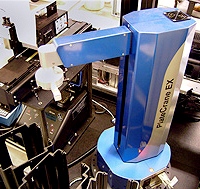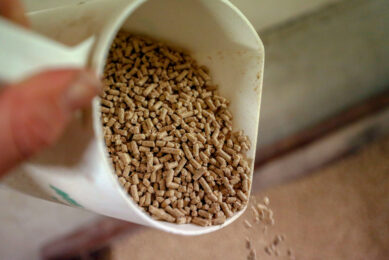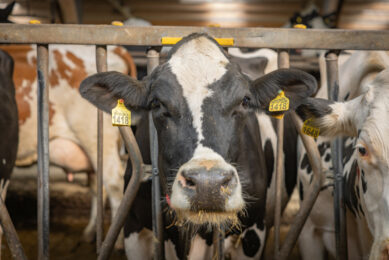Robot improves ethanol research

Scientists with the Agricultural Research Service (ARS) in Peoria, Illinois, are excited about the latest member to join their team: a one-armed robot.
They expect it to speed studies aimed at harnessing the
power of proteins for industrial uses, such as making fuel ethanol from fibrous
corn stover.
The robot is the centrepiece of an automated system called
the “plasmid-based functional proteomics work cell.”
According to Stephen
Hughes, a molecular biologist with the ARS National Center for Agricultural
Utilization Research in Peoria, the system is the first of its kind to fully
automate several procedures that have traditionally been carried out by
hand—human hand, that is.
A short list of functions includes extracting genetic material from the cells
of plants, microbes and other organisms; making DNA copies of genes; inserting
the copies into Escherichia coli; culturing these
bacteria so that the copies can be sequenced and their proteins identified; and
inserting desirable genes into yeasts used to make
ethanol.
Takes over human hand
Thanks to the fast, precise movements of its
mechanized arm, the robotic system can carry out such tasks hundreds—or even
thousands—of times faster than a human could, notes Hughes.
Of particular interest is using the robotic system to genetically modify new
strains of Saccharomyces yeast that
can metabolize sugars locked up within corn fibre—something these microbial
workhorses have so far failed to do.
Currently, only the starch from corn and
other grain crops is being converted commercially into the sugars from which
ethanol is derived.
With the Saccharomyces yeasts now used, this equates to
nearly 47 litre of ethanol from 100 kg of corn. Using new strains capable of breaking down corn fibre could potentially
squeeze 10% more ethanol from the grain, Hughes and colleagues estimate.











